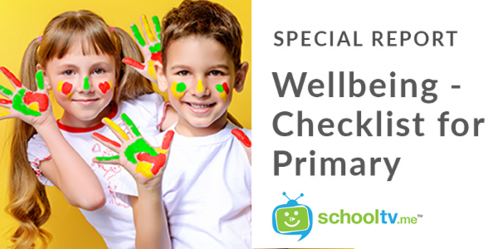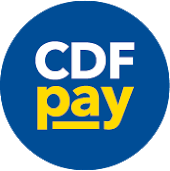Filter Content
Dear Parents and Carers
New opportunities and experiences are part learning at St Clare's. Today we had 11 students represent our school at the Officer District Swimming Carnival at the Noble Park Aquatic Centre. We congrtatulate them all on fantastic results with some advancing to the Divisional event next week.
Next week we have 12 of our students representing St Clare's at the SSV Interschool sports Cricket Gala at Toomuc Reserve in Pakenham. We wish them all the best as our first ever Cricket Team competes in this event.
And our music teacher Mrs Ricchetti has begun wokring with our 2024 school choir. Our Choir will be given the opporutnity to perform at various evenst through the year.
We remind everyone that there is NO SCHOOL on Monday 11 March due to the Labour Day Public Holiday
Upcoming Events:
Monday 11 March - NO SCHOOL Public Holiday
Tuesday 12 March - SSV Division Swimming Event
Wednesday 13 March - Year 2 Swimming #1
Friday 15 March - Year 2 Swimming #2
Saturday 16 March - St Clare's Open Day 10am to 12pm
Monday 18 March - Year 2 Swimming #3
Wednesday 20 March - Year 2 Swimming #4
Friday 22 March - Year 2 Swimming #5, P&F School Disco
Monday 25 March - Year 2 Swimming #6 & Year 4 to Year 6 Cross Country Carnival
Wednesday 27 March - Last Day of Term 2
Year 4 to Year 6 Cross Country Carnival
Religious Education
Congratulations to the students in our school who are receiving the Sacrament of Reconciliation this week. Families attended the Commitment Mass last Saturday evening to show their support for their child/children - the students gave a prayer card to a Parishioner and asked them to pray for them.
We also had several students receive the Sacrament of Baptism over the weekend so a big congratulations to them also.
Lent
This weekend is the fourth Sunday of Lent and we listen to readings from the Chronicles and the Gospel of John (3:14-21). The readings from the Chronicles point out that people are neglecting their relationship with God. The Chronicles were written at a time where the Israelites were conquered and the Temple in Babylon was destroyed and survivors were taken into exile in Babylon. This reading is not unlike the situation many people in our world face today - they have been exiled from their countries and displaced and live in fear and are vulnerable. God calls on the people to build the Temple up again - in other words, He is saying, “Follow me and follow my way (of love)”.
In the Gospel reading, the same message is heard. God does not give up on us - he asks us to forgive each other and love each other. By doing this, we turn towards God and follow Him.
Friday 22 March
Tickets $5 per child
SESSION 1 - FOUNDATION - GRADE 3 - 5PM - 6:30 PM
SESSION 2 - GRADE 4 - GRADE 6 - 7PM - 8:30 PM
For those looking to enrol for 2025 we are holding an Open Day on Saturday 16 March from 10am to 12pm
A SPECIAL REPORT: Wellbeing - Checklist for Primary
Whilst most children are resilient and seem to be demonstrating a remarkable capacity to manage during this challenging time, others are not faring as well. Some are experiencing a variety of emotions ranging from fear to anxiety, all of which are considered normal or natural responses to this current situation.
However despite this, it is still important for adult carers to remain vigilant for any signs of unusual distress or behaviour, even though your child may not have any prior history of a mental health disorder.
It was estimated that one in seven Australasian children experienced a mental health issue before the Coronavirus pandemic, therefore early intervention, diagnosis and treatment is even more important now. In the current climate, one useful thing you can do is help your child focus on the things that they can control - such as their learning, diet, exercise and sleep.
In this Special Report, adult carers will be provided with a checklist that can be used as a guide in determining if there is any cause for concern.
We hope you take time to reflect on the information offered in this Special Report, and as always, we welcome your feedback.
If you do have any concerns about the wellbeing of your child, please seek medical or professional help or discuss this with your child’s teacher.
Here is the link to your special report:
https://stclaresofficer.catholic.schooltv.me/wellbeing-barometer-2023-primary
Edition 2 for 2024 has been sent home with students this week. Here is the link to the catalogue which you can also view online
Orders for this edition will close on Friday 15 March
All orders are to be placed via LOOP. We cannot accept money at school for orders.
CDFpay is a secure, safe and efficient method for ordering and paying for items through school.
Below you will find instructions for setting up your CDFpay account both if you are an existing parent "already have a CDF pay account" or a new parent.
Here is the link to head to our school CDFpay shop St Clare's CDFpay Shop
How to Help Kids Stay Safe Online
Adapted from: https://www.esafety.gov.au/about-us/blog Office of the eSafety Commissioner
- Start the chat
It’s not possible to be at your child’s side every second of the day, so it’s important to talk with them about online safety issues to help develop their critical thinking and ability to make good choices. It’s also good to let them know they can come to you for help if they have any concerns. You may feel they know more about the latest technology than you do, but you have more life experience to guide them.
- With primary school aged children use online devices in the open living spaces at home to make parent supervision part of the expectation for your child.
- Take the opportunity to set some boundaries around when and where they can use devices like tablets, smart TVs and gaming consoles, to help limit potential tech tantrums — you could even fill in an Early Years Family Tech Agreement
- Screen free time before bed is important for good sleep. Consider charging devices in a central location at a regular time each night to allow an hour screen free before bed.
- While you are all at home more, it’s a great time to co-view and co-play with your kids, so you can understand what they are doing and experiencing online.
- Learn about the games, apps, social media and platforms they are using at The eSafety Guide, including how to protect their information and report inappropriate content or conduct.
- Use parental controls and safe search options
Parental controls can help block your child from accessing specific websites, apps or functions. They can also monitor your child’s use of connected devices and set time limits. But beware! You cannot always rely on them — they should be used in combination with other online safety strategies.
- Parental controls are available on most tablets, smartphones, computers, TVs and gaming consoles.
- You can also download family safety controls or buy robust filters out of the box.
- You can set up child-friendly search engines, or select safe search settings on digital devices, to help prevent your child from stumbling across inappropriate sites and content.
- Check smart toy settings
It’s surprising how many toys or devices can connect online these days, from drones and smart teddies to tablets and wearables. While they can be both entertaining and educational, they can reveal your child’s personal details and location — and allow other people to contact them without you knowing. You can help keep them stay safe by:
- setting strong passwords
- turning off location settings
- limiting the amount of personal information shared.
The eSafety Gift Guide has advice on what to check for and how to stay safe.
- Look out for unwanted contact and grooming
Unwanted contact is any communication that makes your child feel uncomfortable or unsafe, even if they initially welcomed the contact. It can come from a stranger, an online ‘friend’ or even someone they actually know. At worst, it can involve ‘grooming’ — building a relationship with the child in order to sexually abuse them.
You can help by:
- making sure their accounts are private — including chat functions on games
- encouraging them to delete requests from strangers and any contacts they don’t know in person
- checking in with your child as they use online devices in the open living spaces at home
- reporting and blocking anyone suspicious on a website or service
- remembering that if suspicious online contacts become aggressive or threatening you should contact your local police.
- Know the signs of cyberbullying
Kids who are bored by long periods at home can pick at each other, and that happens online too. So it’s important to keep an eye out for cyberbullying. It can include mean posts, comments and messages, as well as being left out of online group activities like gaming.
- Remember, when they are away from school, kids have less access to their usual support systems, including friends, teachers and counsellors.
- eSafety research shows that girls are more likely to be affected than boys and the person doing the bullying is generally someone they know from school.
- Watch out for signs such as your child appearing upset after using their mobile, tablet or computer, being unusually secretive about their online activities or becoming withdrawn.
- Cyberbullying can make social isolation worse and the longer it continues, the more stressed kids can become, impacting on their emotional and physical wellbeing.
What to do if your child is being cyberbullied
As parents, our first instinct may be to ban our children from social media, disable the wi-fi or turn off the data access. But this can actually compound the problem, making your child feel as if they’re being punished and heightening their sense of social exclusion.
There are four simple steps that can help minimise the harm:
- report the cyberbullying to the social media service where it is occurring
- collect evidence of the cyberbullying material
- if the material is still public 48 hours later, make a report to eSafety — we work with social media platforms to have the harmful content removed.
block the offending user.















